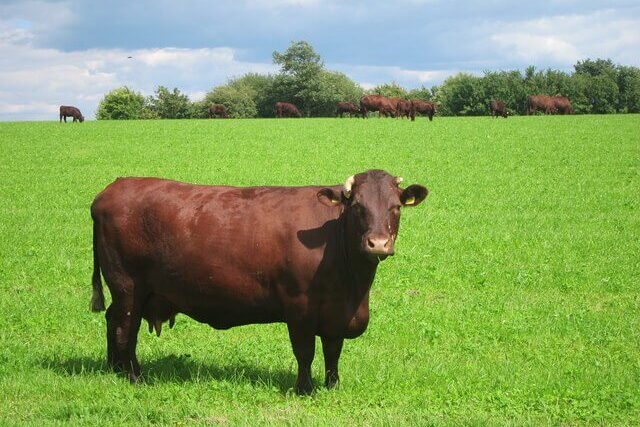
According to a study conducted in the United Kingdom, farming is responsible for over a quarter of the particle pollution in urban areas. In 2019, rural agriculture contributed 38% of the particle pollution in Leicester, 32% in Birmingham, and 25% in London. This was greater than all of the sources within the cities themselves. Particle pollution can remain in the air for a week or more, allowing particles to travel long distances from their source. The study also revealed that particle pollution from other European countries impacted the UK, particularly the south and east of England. However, the effect from UK farming was more significant.
The study team at University College London (UCL) was surprised to find that ammonia from rural agriculture was such a significant source of particulate matter pollution. It was found to be the primary source of particle pollution in UK cities, even in London. Dr. Jamie Kelly, a member of the study team, stated that the government would need to take more ambitious measures to reduce ammonia emissions if they were serious about addressing particulate pollution to improve public health.
Farming is responsible for the springtime smog that affects Western Europe every year. Paris, for instance, attempted to control a spring smog by banning half of its traffic in 2014. However, the effort was futile. Addressing agricultural ammonia could have enormous health benefits. A study by Public Health England and the Met Office estimated that over 1,600 people in the UK died early due to particle pollution in March and April 2014. The worst ten days had an estimated 600 extra deaths and more than 1,500 extra hospital admissions. Many of these could have been avoided.
Satellite data provided key evidence for the new UK study. Each morning and lunchtime, satellites pass over the UK and measure the ammonia beneath them. The UK government estimates are about half to two-thirds of those from the satellites. Northern Ireland and Norfolk have the highest ammonia emissions.
Dr. Eloise Marais from UCL highlighted that the official inventories that inform policies and assess compliance with international emissions targets underestimate ammonia emissions from farming, particularly dairy cattle. Agricultural ammonia emissions have not decreased in over a decade. Solving urban air pollution problems will require innovation in the countryside, as well as solutions in cities.
Farms have been receiving increased attention for their role in river pollution and the production of gases such as methane that contribute to the climate emergency. However, their impact on air pollution, which harms public health, has received less attention. The impact comes from small particles created when ammonia from animal waste and fertilizers combine with air pollution from traffic and industry. Farmers need to come up with new solutions themselves to address this issue.
The UK100 group of local government leaders has highlighted opportunities for local councils to make a difference by helping farmers work together and through the tenanted farms they own. It will be necessary to reduce ammonia emissions from farming and to develop innovative solutions in rural areas to tackle urban air pollution.
——————————————————————————
At Natural World Fund, we are passionate about stopping the decline in our wildlife.
The declines in our wildlife is shocking and frightening. Without much more support, many of the animals we know and love will continue in their declines towards extinction.
When you help to restore a patch of degraded land through rewilding to forests, meadows, or wetlands, you have a massive impact on the biodiversity at a local level. You give animals a home and food that they otherwise would not have had, and it has a positive snowball effect for the food chain.
We are convinced that this is much better for the UK than growing lots of fast-growing coniferous trees, solely to remove carbon, that don’t actually help our animals to thrive.
This is why we stand for restoring nature in the UK through responsible rewilding. For us, it is the right thing to do. Let’s do what’s right for nature!
Support our work today at https://naturalworldfund.com/ and join in the solution!

